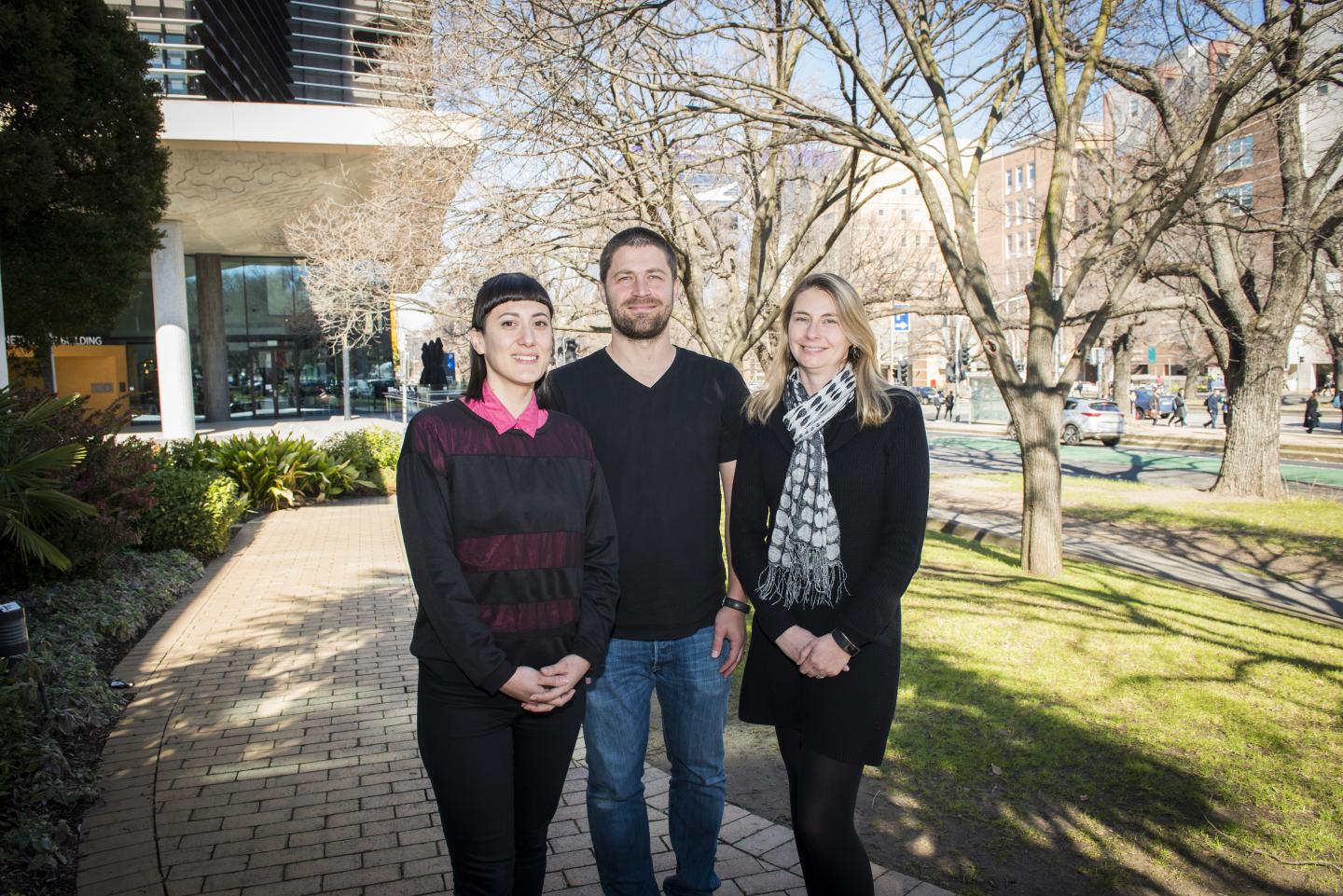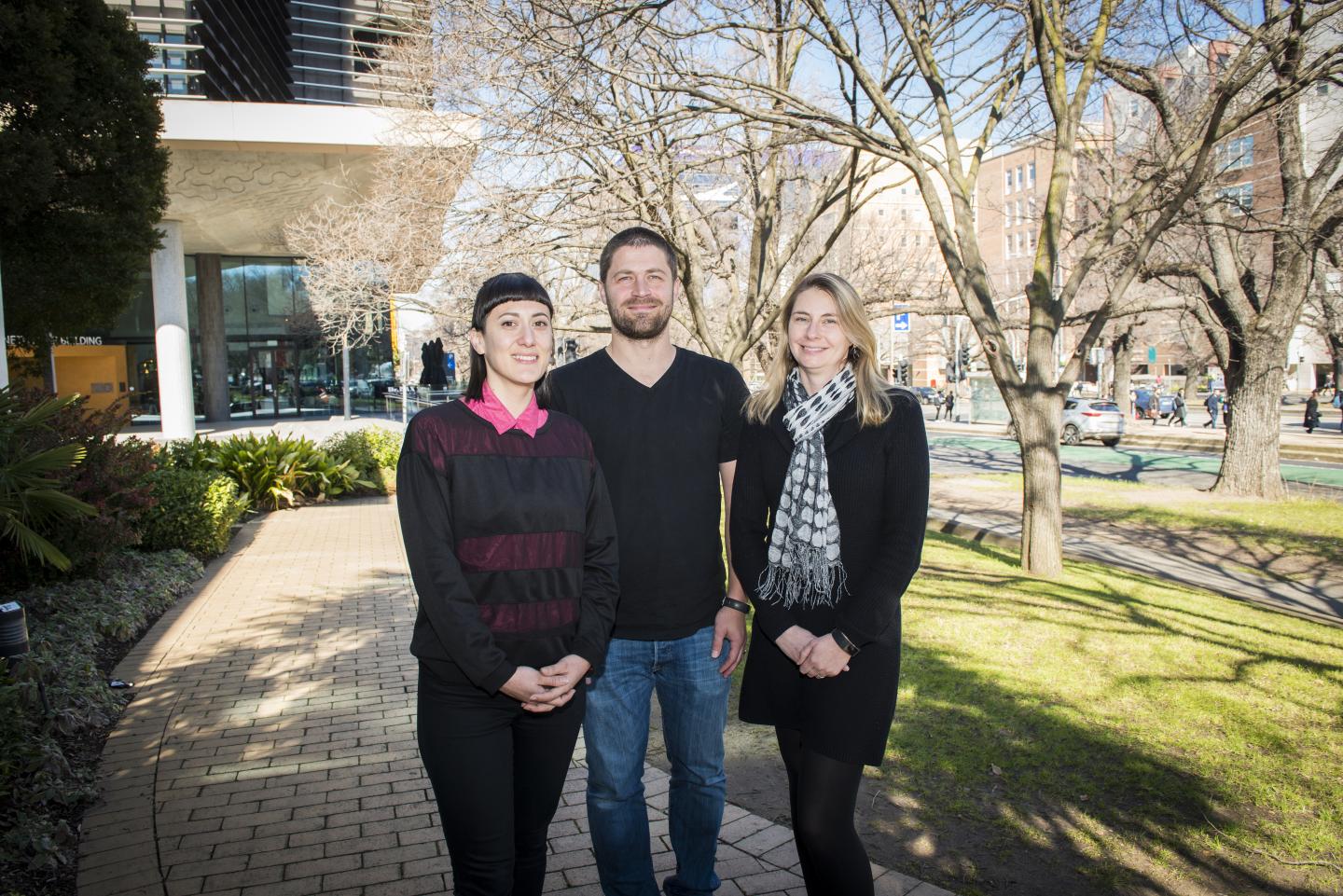
Credit: The Walter and Eliza Hall Institute of Medical Research
Walter and Eliza Hall Institute researchers have genetically engineered a new laboratory model that enables accurate testing of anti-cancer drugs by mimicking the complexity of human cancers.
Using this advanced model, researchers will be able to discover the safest and most effective ways to use promising drugs called MCL-1 inhibitors in the clinic.
The work was led by PhD student Ms Margs Brennan, Dr Gemma Kelly and Associate Professor Marco Herold, and has been published in the journal Blood.
At a glance
- Researchers have genetically engineered a laboratory model for testing the effectiveness of new anti-cancer drugs called MCL-1 inhibitors.
- The model is the best available for preclinical testing of MCL-1 inhibitors and will help to identify the right patients for these drugs.
- MCL-1 inhibitors work by targeting a protein essential for the sustained growth of many blood cancers, as well as solid tumours including breast cancers and melanoma.
Attacking cancer's Achilles' heel
MCL-1 is a protein essential for the sustained growth of many blood cancers, as well as some solid tumours including breast cancer and melanoma. Dr Kelly said this role in promoting cancer cell survival makes MCL-1 an attractive therapeutic target.
"MCL-1 allows cancer cells to evade the process of programmed cell death, or apoptosis, that normally removes damaged or unwanted cells from the body.
"Because so many cancer cells depend on MCL-1 for survival, it is like cancer's Achilles' heel – if we can attack this weak point with a drug, we may be able to successfully trigger apoptosis and destroy cancer cells for good," Dr Kelly said.
A highly potent inhibitor of MCL-1, called S63845, has been developed by pharmaceutical company Servier. While the drug is known to trigger cancer cell death in the laboratory, until now there was no accurate tool to predict how the drug would work in patients.
Rigorous testing for targeted clinical use
In this new study, researchers genetically engineered a model to accurately evaluate MCL-1 inhibitors. The model is the best available for laboratory-based studies evaluating S63845, closely predicting how cancer patients will respond to the drug in the clinic.
Ms Brennan said the laboratory model will allow researchers to find the best ways to match MCL-1 inhibitors with the right cancer patients.
"Using this model, we can get a handle on key questions such as which types of cancers are sensitive to MCL-1 inhibitors, which patients will benefit, which combination treatments will be most effective and the best dosing regimens to use.
"Working with laboratory models that closely mimic human cancer allows us to gain as much knowledge about MCL-1 inhibitors as we can before the drugs even reach the clinic. This lays the groundwork for future clinical trials, hopefully improving treatment options for patients," she said.
Powerful potential for treatments
To demonstrate the potential of this new research tool, the researchers used it to test whether MCL-1 inhibitors could effectively treat a preclinical model of lymphoma.
"We found that treatment with the MCL-1 inhibitor S63845 led to remission in six out of 10 cases of lymphoma," Associate Professor Herold said. "This was achieved without significant side effects, suggesting that S63845 will be safe and effective in the clinic."
Associate Professor Herold said MCL-1 inhibitors could be particularly powerful when combined with standard treatments like chemotherapy.
"MCL-1 allows cancer cells to resist treatments like chemotherapy that would otherwise trigger cell death. In our preclinical model, we found that combining an MCL-1 inhibitor with chemotherapy led to remission in almost all cases of lymphoma," he said.
The team is now using their laboratory model to test whether MCL-1 inhibitors are effective for other types of blood cancers. They will also share the model with other members of the scientific community studying MCL-1 inhibitors in different disease contexts.
"Our laboratory model will be invaluable for future preclinical work determining the best uses of MCL-1 inhibitors for treating human disease," Associate Professor Herold said.
###
This work was supported by the Australian National Health and Medical Research Council, Servier Laboratories, the Leukemia and Lymphoma Society of America, the Cancer Council of Victoria, the Victorian Cancer Agency, the Leukaemia Foundation, the Estate of Anthony (Toni) William Redstone OAM, the Craig Perkins Cancer Research Foundation, Mr Malcolm Broomhead, the Australian Government and the Victorian State Government.
Media Contact
Arunee Wilson
[email protected]
61-475-751-811
@WEHI_research





